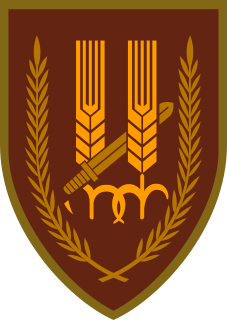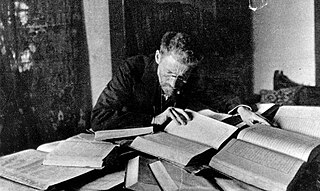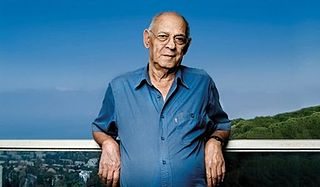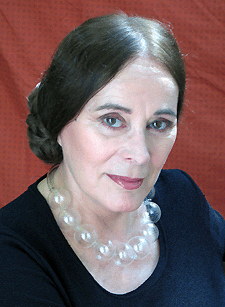On Sarig (Hebrew : און שׂריג) is one of several pen names of Shraga Gafni (Hebrew : שרגא גפני; June 22, 1926 – January 19, 2012), an Israeli author of children's books. Under this name, Gafni wrote the "Danidin" series, one of the most popular children book series in Israel, chronicling the fictional adventures of an invisible child. [1]
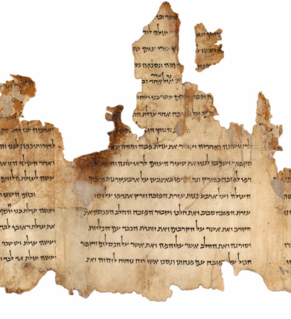
Hebrew is a Northwest Semitic language native to Israel; the modern version of which is spoken by over 9 million people worldwide. Historically, it is regarded as the language of the Israelites and their ancestors, although the language was not referred to by the name Hebrew in the Tanakh. The earliest examples of written Paleo-Hebrew date from the 10th century BCE. Hebrew belongs to the West Semitic branch of the Afroasiatic language family. Hebrew is the only living Canaanite language left, and the only truly successful example of a revived dead language.
A pen name is a pseudonym adopted by an author and printed on the title page or by-line of their works in place of their "real" name. A pen name may be used to make the author's name more distinctive, to disguise their gender, to distance an author from some or all of their previous works, to protect the author from retribution for their writings, to combine more than one author into a single author, or for any of a number of reasons related to the marketing or aesthetic presentation of the work. The author's name may be known only to the publisher or may come to be common knowledge.

Israel, officially the State of Israel, is a country in Western Asia, located on the southeastern shore of the Mediterranean Sea and the northern shore of the Red Sea. It has land borders with Lebanon to the north, Syria to the northeast, Jordan on the east, the Palestinian territories of the West Bank and Gaza Strip to the east and west, respectively, and Egypt to the southwest. The country contains geographically diverse features within its relatively small area. Israel's economic and technological center is Tel Aviv, while its seat of government and proclaimed capital is Jerusalem, although the state's sovereignty over Jerusalem has only partial recognition.


